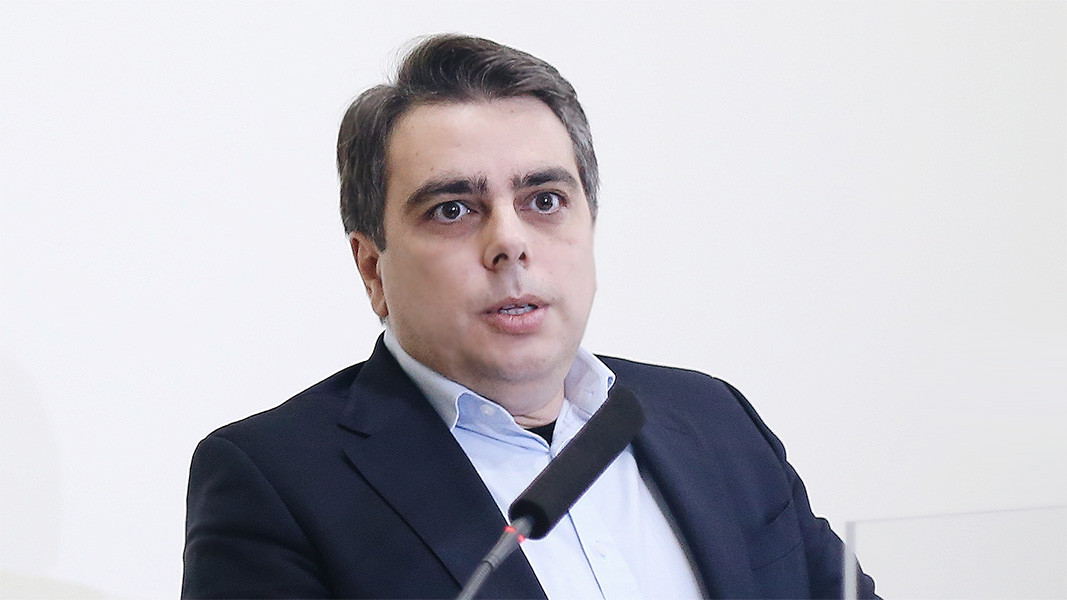Bulgaria’s Deputy Premier and Minister of Finance Assen Vassilev called the 2022 draft budget “a budget of economic growth”. “The new budget envisages higher capital investments with EU funds and money from the state budget; a significant increase in human capital investments, because this is the key to economic growth in the long term; social justice and adequate living standard of all Bulgarian citizens”.
Due to the political situation in the country and the fact that a regular cabinet was formed at the end of 2021, last year’s budget will be in force until the end of March, 2022. The 2022 draft budget presented by this country’s Minister of Finance is expected to take effect on April 1. As of April 1, the minimum monthly salary in Bulgaria will increase from 650 Leva (EUR 325) to 710 Leva (EUR 355).
“I hope that with the 2022 budget, we will start a policy aimed at investing in certain high return projects, in the people of Bulgaria and in the much-needed infrastructure”, Assen Vassilev said and added:

“The 2022 draft budget projects a GDP growth of 4.8%, which is 1.2% more as compared to 2021. Unemployment is set to decrease from 5.4% to 5%. The budget deficit excluding the Covid-19 measures will stand at 2.5% of the GDP and the deficit, including the coronavirus measures will amount to 4.1% of Bulgaria’s gross domestic product.”
“We cannot achieve economic growth without investing in people and capital infrastructure - Minister Vassilev noted. - That is why, we are planning to double capital investments from 2.9% of the GDP to 5.8% of the GDP. Capital investments in Bulgaria’s municipalities are to increase with 30% via financial transfers from the state budget. We have earmarked an extra EUR 858 million for the national road network. The budget of the Road Infrastructure Agency will amount to EUR 2.1 billion. EUR 178 million will be used for capital investments in hospitals and sports grounds. EUR 35 million will be spent for kindergartens, renovation of concert halls, museums, galleries, operas and theatres.”
The 2022 draft budget projects a 5.6% annual inflation. Bulgaria’s Minister of Finance forecasted that inflation would peak in March and April and will fluctuate between 5% and 8%.
As for the social policy, pensions will increase with 6.1% on July 1. The minimum monthly salary and maternity allowances will be to the tune of EUR 355. Unemployment benefits will rise from EUR 6 to EUR 7.5 a day. The maximum insurable earnings will amount to EUR 1,700. “Bulgaria will be a rich country when salaries are high”, Assen Vassilev said and added that education remains key priority of the government.
“Teachers’ salaries will continue to be 25% higher than the average salary in the country. For the purpose, an extra EUR 158 million will be spent on education.”
The budget is expected to be amended in the summer, when all policies will be valued in full.
Taxes will remain unchanged. The government is planning to abolish the tax on the interest rates paid on deposits. Bulgaria is planning to reduce the “weekend tax”. However, this tax cannot be fully abolished because of the EU requirements, Assen Vassilev specified.
Written by: Marta Mladenova
English version: Kostadin Atanasov
Photos: library, BGNES"Bulgartransgaz" has announced a public procurement for "Organizational planning, investment design, supply of necessary materials and equipment, construction and commissioning of new facilities for the expansion of the gas..
The head of the regular mission of the International Monetary Fund in Bulgaria, Jean-Francois Dauphin, has presented the results of the review of the Bulgarian economy and financial system . The fund's mission began on March 6 and ends today...
Monthly inflation was 0.3 per cent in February, the National Statistical Institute (NSI) said. Bulgaria's annual consumer price index (CPI) recorded inflation of 3.3 per cent in February, down from 3.8 per cent in the previous month. It was the 14th..
"I have tried to get experts into the government, to achieve continuity and the cabinet to be politically balanced," caretaker Prime Minister Dimitar..

+359 2 9336 661
